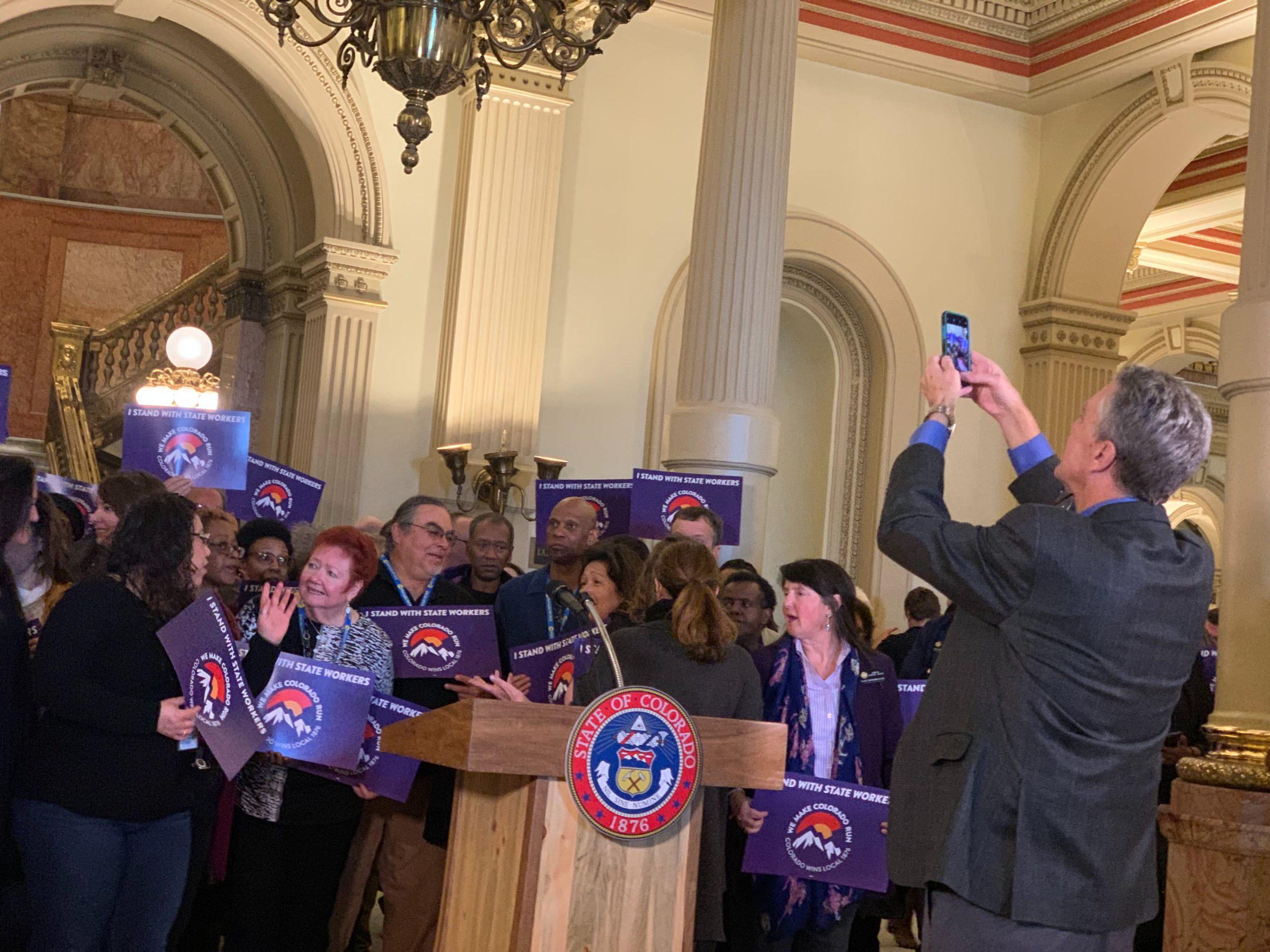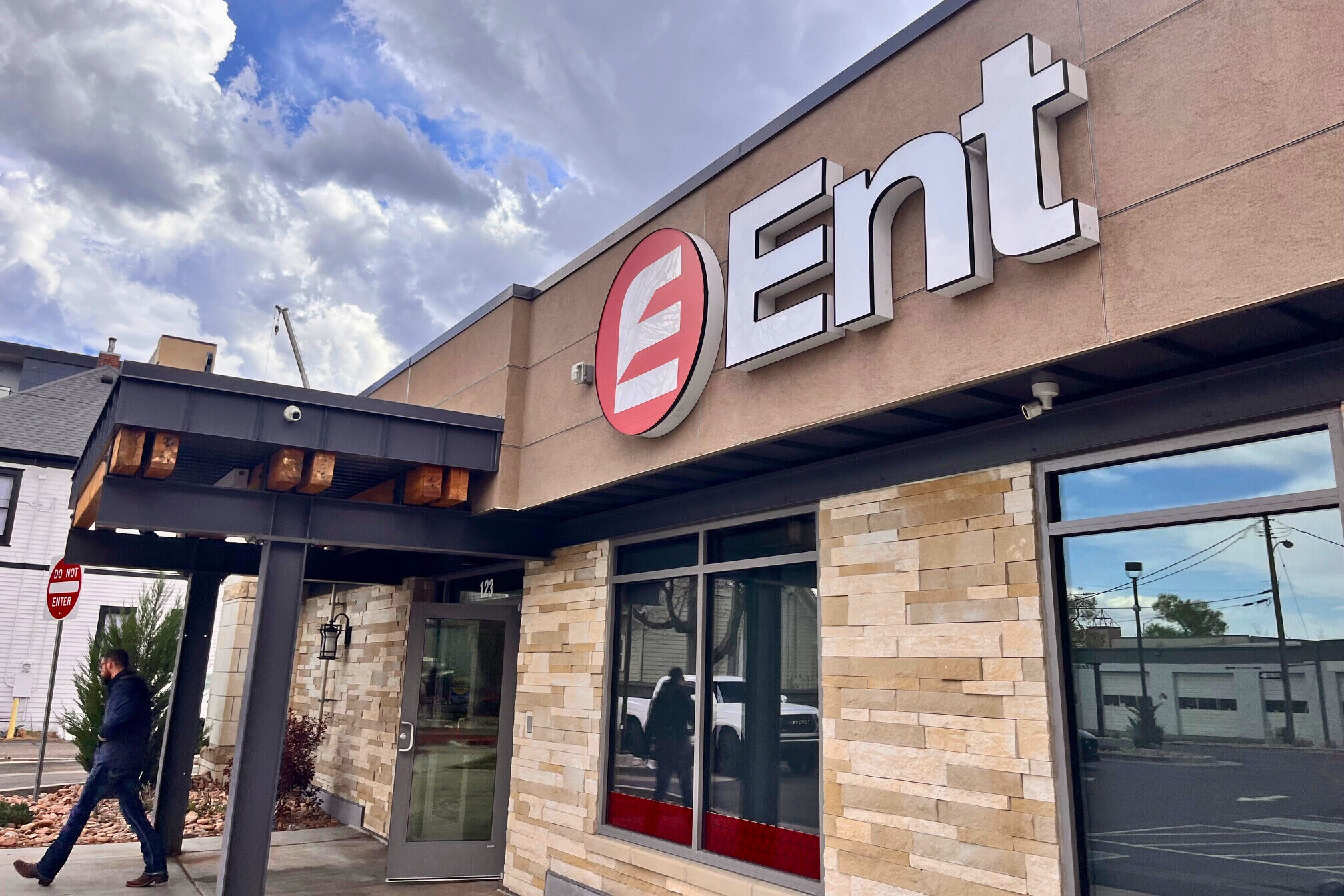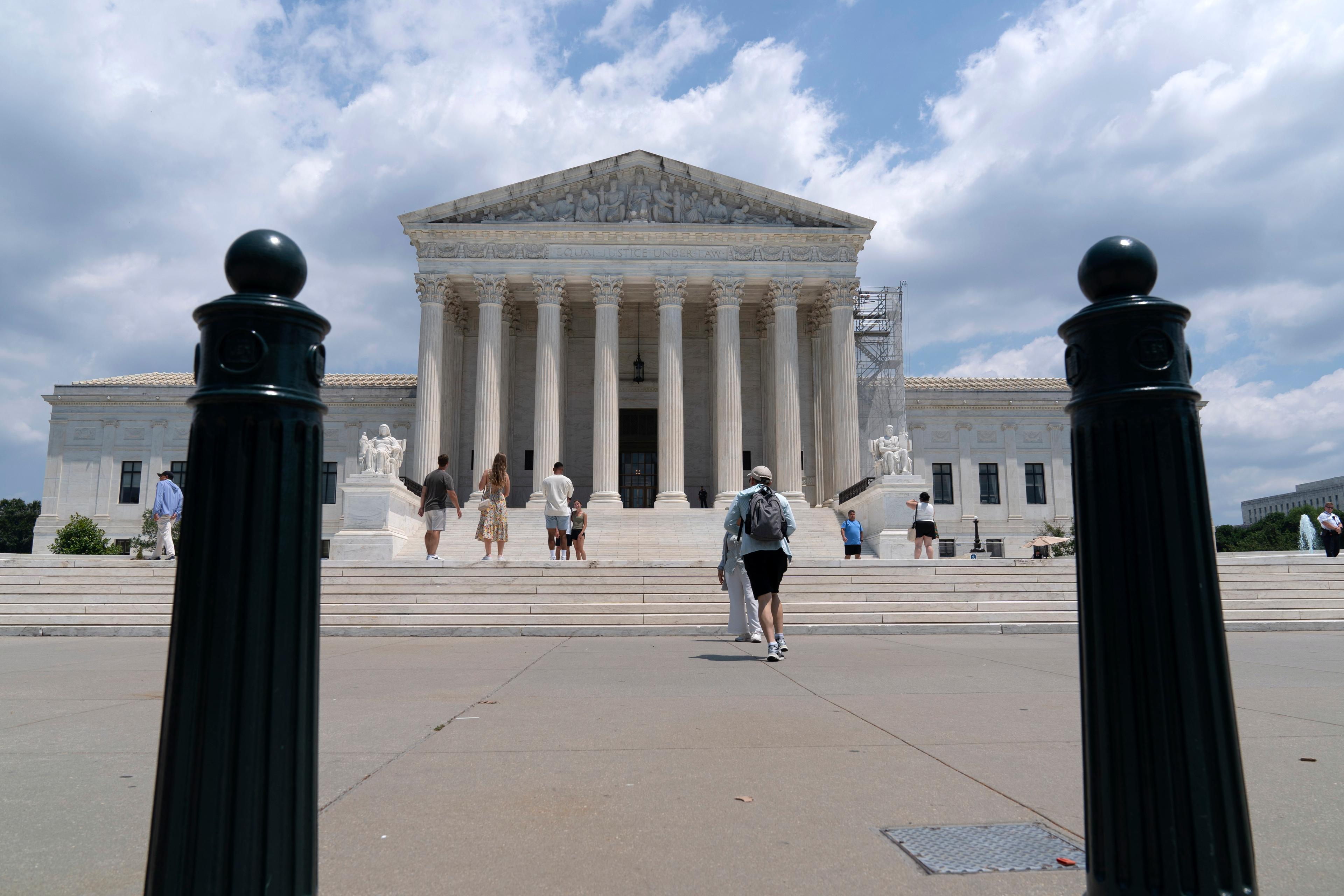
On the third day of the 2020 legislative session, Gov. Jared Polis announced he will support new labor rights for tens of thousands of state employees.
A bill backed by Polis and top Democratic legislators would allow state employee unions to collectively bargain with the state government.
"By formalizing these (employee) partnerships, information will flow better from workers to management. The voices of people doing work will be heard, and we can improve customer service and efficiency," Polis said at an event unveiling the bill in the halls of the Capitol. "You know, this is an enormous step we're announcing today."
State employees already have a union, Colorado WINS, which was formed after an executive order in 2007 by Gov. Bill Ritter. Ritter's action drew intense backlash at the time, despite its limited scope.
However, unlike public unions in most states, WINS wasn't able to negotiate binding contracts — and its existence wasn't permanently protected by the law. That would change under the proposed new law.
"The executive order would have allowed another governor, a hostile governor, to simply wipe us out with the stroke of a pen," said Skip Miller, president of Colorado WINS.
The bill will be sponsored by state Rep. Daneya Esgar and Senate President Leroy Garcia, both Democrats from Pueblo.
Esgar said collective bargaining would improve conditions for state workers by allowing them to argue for pay and benefits. That's important when one in five state jobs is going unfilled, she said.
"More workers will achieve the power they deserve to build a life for themselves and their families," Esgar said.
Her goal is to restore the "state job" to the allure it once held.
The state granted raises under Polis, and he's asked for paid family leave benefits for state employees. The announcement was another early win for the union.
The moves mark a change since last year, when Polis announced he wasn't ready to sign a similar collective bargaining bill introduced late in the session. He said he had concerns about some of the details and that there wasn't enough time left to work them out.
After months of negotiations and changes to the bill, the governor offered his support early in this year's lawmaking season.
"The concept is one we never had a problem with," Polis said.
Workers would not be allowed to strike. The bill also likely won't allow unions to force workers to join or pay dues. And any money for raises must ultimately be approved by legislators through the state budget.
The bill would, however, give leverage to unions by guaranteeing negotiations. The contracts would be bargained between a single statewide unit for employees and the state government, according to the administration.
"We're required to bargain. We're required to bargain in good faith," said Jacki Cooper Melmed, chief legal counsel for Polis.
"The leverage comes from the fact that this is going to be a law, and that our contracts will be legally binding," said Hilary Glasgow, executive director for WINS.
Republicans opposed the collective bargaining bill last year, warning it could drive up costs. Democrats control both houses of the legislature and the governor's office.
State Rep. Kim Ransom, a Republican, asked what would happen when collective bargaining results in promises that the state legislature can't — or won't — pay for.
"I think it could get very difficult to navigate, and that could happen very quickly," Ransom said, adding that she was waiting to see more details from the bill.
The state has treated its employees well, she argued, but ultimately operates differently from a business.
"The state's way of paying its employees is through various forms of taxes and fees for the work performed. That would, in essence, put taxpayers on the hook for the result of that collective bargaining," she said.
The bill could be filed next week, representatives said.









